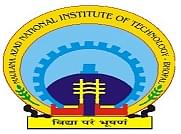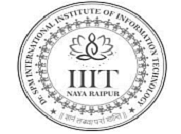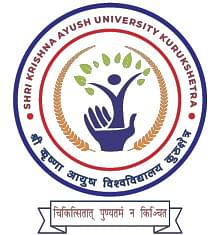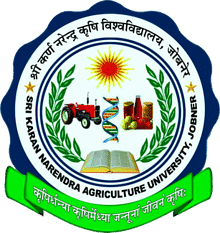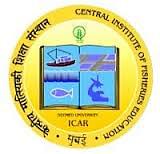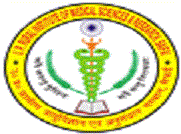Introduction about BSc in Biology
A Bachelor of
Science (BSc) in Biology from the top university in India is an
undergraduate degree program designed to provide students with a comprehensive
understanding of the fundamental principles governing living organisms and
their interactions with the environment. This program explores the diversity of
life forms, from microscopic organisms to complex ecosystems, and examines the
processes that drive biological phenomena at the molecular, cellular,
organismal, and ecological levels.
In a BSc in Biology
program, students study a wide range of topics covering various sub-disciplines
within biology, including molecular biology, genetics, physiology, ecology,
evolution, and organismal biology. They learn about the structure and function
of biological molecules, cells, tissues, organs, and systems, as well as the
mechanisms of inheritance, growth, development, and adaptation in living
organisms.
Throughout their
studies, students engage in hands-on laboratory work, fieldwork, and research
projects, where they apply theoretical concepts and experimental techniques to
investigate biological phenomena, collect and analyze data, and draw
conclusions. They learn to use advanced laboratory equipment and
instrumentation, such as microscopes, DNA sequencers, spectrophotometers, and
ecological monitoring tools, to explore the complexities of the natural world.
In addition to core
biology courses, BSc in Biology programs often include elective courses that
allow students to specialize in specific areas of interest, such as molecular
biology, microbiology, environmental biology, marine biology, or conservation biology.
These electives enable students to tailor their education to suit their
interests and career aspirations.
Upon completion of
a BSc in Biology, graduates are well-prepared for a variety of career paths.
Many pursue further studies in biology or related fields at the graduate level,
leading to advanced degrees such as Master of Science (MSc) or Doctor of Philosophy
(PhD). Others find employment in industries such as healthcare, biotechnology,
pharmaceuticals, agriculture, environmental conservation, education, and
government, where strong analytical, critical thinking, and problem-solving
skills are highly valued.
What is admission process for BSc in biology ?
The admission
process for the top affordable Bachelor of Science (BSc) in Biology college
program typically involves several steps, which may vary depending on the
institution and country. Here is a general overview of the admission process:
Research and
Selection of Universities:
Prospective students should research universities offering BSc programs in
Biology and identify those that best align with their academic interests,
career goals, and personal preferences. Factors to consider include the
university's reputation, program curriculum, faculty expertise, location,
facilities, and financial considerations.
Review Admission
Requirements: Applicants
should carefully review the admission requirements for each university and
program they are interested in. These requirements typically include
educational qualifications, minimum GPA, prerequisite courses, standardized
test scores (if applicable), language proficiency, and submission of
application materials.
Prepare Application
Materials: Applicants need
to gather and prepare all required application materials, which may include:
Completed
application form
Official
transcripts or academic records from secondary school or previous higher
education institutions
Standardized test
scores (e.g., SAT, ACT, A-levels)
English language
proficiency test scores (e.g., TOEFL, IELTS) for non-native English speakers
Letters of
recommendation from teachers, counselors, or other individuals who can speak to
the applicant's academic abilities and character
Personal statement
or essay explaining the applicant's academic and career goals, relevant
experiences, and reasons for choosing the program
Submit Application: Applicants must submit their completed
application form and all required documents by the specified deadline. Some
universities may allow online submission of applications, while others may
require hard copies to be mailed.
Application Review: Once the application deadline has passed,
the university's admissions committee will review all submitted applications.
They will evaluate the applicant's academic qualifications, test scores,
letters of recommendation, personal statement, and any other relevant factors.
Notification of
Admission Decision: After
reviewing applications, the university will notify applicants of their
admission decision. This notification may come in the form of an acceptance
letter, email, or through an online portal. Accepted students may also receive
information about enrollment procedures, financial aid, housing options, and
other important details.
Enrollment and
Confirmation: Accepted
students must follow the university's instructions to confirm their enrollment
by submitting any required enrollment forms and deposits by the specified
deadline. This process secures their spot in the BSc in Biology program.
It's essential for
applicants to adhere to all application deadlines and requirements and to stay
informed about the admission process at their chosen universities. If they have
any questions or need assistance, they can reach out to the university's admissions
office for guidance and support.
What is syllabus for BSc in biology?
The syllabus for a
Bachelor of Science (BSc) in Biology program can vary depending on the
university, country, and specific program requirements. However, here is a
general overview of the typical topics covered in a BSc Biology curriculum:
Foundation Courses:
General Biology:
Introduction to Biology, Cell Biology, Molecular Biology, Biochemistry,
Genetics, Evolutionary Biology, Ecology
Chemistry for
Biologists: General Chemistry, Organic Chemistry, Biochemistry
Mathematics for
Biologists: Calculus, Statistics, Biostatistics
Core Biology
Courses:
Cell Biology: Cell
Structure and Function, Cell Cycle, Cellular Communication, Cell Signaling,
Cell Division
Genetics: Mendelian
Genetics, Molecular Genetics, Population Genetics, Genomics, Genetic
Engineering
Physiology: Human
Physiology, Plant Physiology, Animal Physiology, Systems Physiology
Ecology: Principles
of Ecology, Population Ecology, Community Ecology, Ecosystem Ecology,
Conservation Biology
Organismal Biology:
Plant Biology:
Plant Structure and Function, Plant Taxonomy, Plant Physiology, Plant
Development
Animal Biology:
Animal Diversity, Animal Anatomy and Physiology, Animal Behavior, Zoology
Microbiology:
Introduction to Microbiology, Microbial Diversity, Microbial Physiology,
Microbial Genetics
Evolutionary
Biology:
Principles of
Evolution: Darwinian Evolution, Mechanisms of Evolution, Speciation,
Phylogenetics
Evolutionary
Processes: Natural Selection, Genetic Drift, Gene Flow, Mutation, Adaptation
Evolutionary
Ecology: Evolutionary Ecology, Coevolution, Behavioral Ecology, Ecological
Genetics
Research Methods
and Techniques:
Experimental
Biology: Laboratory Techniques, Experimental Design, Data Analysis, Scientific
Communication
Field Biology:
Fieldwork Techniques, Sampling Methods, Biodiversity Surveys, Environmental
Monitoring
Electives and
Specializations:
Molecular Biology
and Biotechnology: Recombinant DNA Technology, Gene Expression, Genetic
Engineering, Biomedical Applications
Environmental
Biology: Environmental Science, Environmental Monitoring, Environmental Impact
Assessment, Conservation Biology
Human Biology and
Health Sciences: Human Anatomy and Physiology, Pathophysiology, Immunology,
Epidemiology, Public Health
Marine Biology:
Marine Ecology, Oceanography, Marine Conservation, Aquatic Biology
Capstone Project or
Thesis:
Some BSc Biology
programs require students to complete a capstone project or thesis, where they
conduct independent research under the supervision of a faculty member. This
project allows students to apply their knowledge and skills to address a
specific research question or problem in biology.
This outline
provides a broad overview of the typical syllabus for a BSc in Biology program.
However, students should consult the specific curriculum and course offerings
of the university they are interested in for detailed information on course
requirements, prerequisites, and electives. Additionally, the syllabus may be
subject to updates and changes over time to reflect advancements in the field
and the evolving needs of students and industries.
What is scope after BSc in biology ?
The scope after
completing a Bachelor of Science (BSc) in Biology from the best universityin India is broad and diverse,
offering numerous opportunities for graduates across various industries and
sectors. Here are some potential career paths and further academic options for
BSc Biology graduates:
Higher Education: Many graduates choose to pursue further
education by enrolling in postgraduate programs such as Master of Science (MSc)
or Doctor of Philosophy (PhD) in Biology or related fields. Advanced degrees
can lead to careers in academia, research, or specialized areas such as
molecular biology, genetics, ecology, microbiology, or biotechnology.
Research and
Development: Biologists are
employed in research institutions, government agencies, and private companies
to conduct research in areas such as genetics, genomics, molecular biology,
physiology, ecology, evolution, and biotechnology. They work on solving complex
biological problems, discovering new knowledge, and developing innovative
technologies and applications.
Healthcare and
Medicine: Biologists work
in healthcare and medical professions in roles such as medical scientists,
biomedical researchers, healthcare educators, and clinical laboratory
scientists. They contribute to medical research, drug discovery and
development, disease diagnosis and treatment, and public health initiatives.
Biotechnology and
Pharmaceutical Industries:
Biologists play key roles in the biotechnology and pharmaceutical industries,
where they work on developing new drugs, vaccines, diagnostics, and therapeutic
treatments. They may work in research and development, quality control,
regulatory affairs, or product management roles.
Environmental
Conservation and Sustainability: Biologists work in environmental science and conservation to study and
protect ecosystems, biodiversity, and natural resources. They may work in environmental
consulting firms, government agencies, non-profit organizations, or research
institutions to address environmental issues such as climate change, habitat
destruction, pollution, and species extinction.
Agriculture and
Food Security: Biologists
contribute to agricultural research and food production by studying plant
genetics, crop science, pest management, soil ecology, and sustainable
agriculture practices. They work to improve crop yields, develop
disease-resistant crops, and ensure food safety and security for growing
populations.
Education and
Outreach: Graduates with a
BSc in Biology can pursue careers in education as biology teachers, lecturers,
or science educators at schools, colleges, and universities. They play a vital
role in teaching and inspiring the next generation of scientists and fostering
scientific literacy and awareness in society.
Government and
Policy: Biologists work in
government agencies, regulatory bodies, and policy organizations to provide
scientific expertise and guidance on environmental policy, public health
regulations, wildlife management, and biotechnology regulation.







